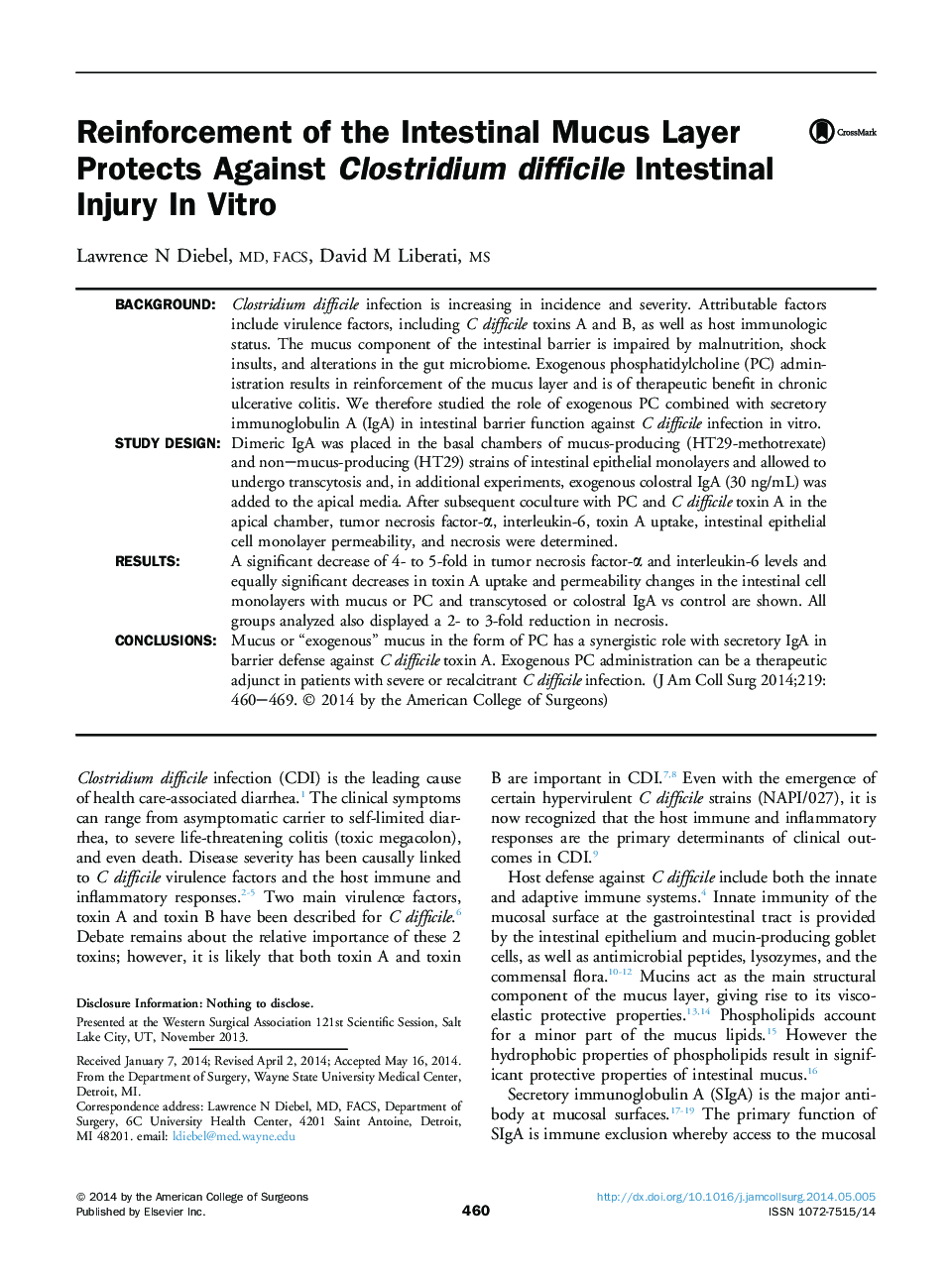| کد مقاله | کد نشریه | سال انتشار | مقاله انگلیسی | نسخه تمام متن |
|---|---|---|---|---|
| 4291950 | 1612229 | 2014 | 9 صفحه PDF | دانلود رایگان |

BackgroundClostridium difficile infection is increasing in incidence and severity. Attributable factors include virulence factors, including C difficile toxins A and B, as well as host immunologic status. The mucus component of the intestinal barrier is impaired by malnutrition, shock insults, and alterations in the gut microbiome. Exogenous phosphatidylcholine (PC) administration results in reinforcement of the mucus layer and is of therapeutic benefit in chronic ulcerative colitis. We therefore studied the role of exogenous PC combined with secretory immunoglobulin A (IgA) in intestinal barrier function against C difficile infection in vitro.Study DesignDimeric IgA was placed in the basal chambers of mucus-producing (HT29-methotrexate) and non–mucus-producing (HT29) strains of intestinal epithelial monolayers and allowed to undergo transcytosis and, in additional experiments, exogenous colostral IgA (30 ng/mL) was added to the apical media. After subsequent coculture with PC and C difficile toxin A in the apical chamber, tumor necrosis factor-α, interleukin-6, toxin A uptake, intestinal epithelial cell monolayer permeability, and necrosis were determined.ResultsA significant decrease of 4- to 5-fold in tumor necrosis factor-α and interleukin-6 levels and equally significant decreases in toxin A uptake and permeability changes in the intestinal cell monolayers with mucus or PC and transcytosed or colostral IgA vs control are shown. All groups analyzed also displayed a 2- to 3-fold reduction in necrosis.ConclusionsMucus or “exogenous” mucus in the form of PC has a synergistic role with secretory IgA in barrier defense against C difficile toxin A. Exogenous PC administration can be a therapeutic adjunct in patients with severe or recalcitrant C difficile infection.
Journal: Journal of the American College of Surgeons - Volume 219, Issue 3, September 2014, Pages 460–468